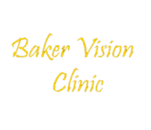
Almost every person experiences some form of eyelid twitching in his or her lifetime. Known medically as blepharospasm, eyelid twitching is characterized by the involuntary movement or spasm of the eyelid muscles. Spasms typically occur every few seconds over the course of several minutes. Twitching episodes might occur for several days or weeks at a time. Blepharospasms occur in varying strengths, sometimes the spasm might force the eyelid shut. In other instances, it might only cause a slight fluttering of the eyelid. Typically, eyelid twitching is a harmless annoyance, but in rare cases it can signify a more serious neuromuscular problem.
Since blepharospasm is usually benign, no singular cause has been pinpointed, but several factors have been shown to increase the frequency or duration of eye twitching. These factors include:
• Stress
• Physical Exertion
• Fatigue or Lack of Sleep
• Eyelid or Eye Irritation
• Caffeine
• Tobacco
• Alcohol
• Medication Side Effects
Patients who experience chronic eyelid twitching in both eyes have what is called benign chronic blepharospasm. While the causes of this condition are unknown, the following factors may worsen it:
• Conjunctivitis (Pink Eye)
• Blepharitis (Inflammation of the Eyelid)
• Entropion (Inward Turned Eyelid)
• Uveitis (Inflammation of the Eye)
• Stress
• Sensitivity to Light
• Fatigue
• Environmental Irritants
Though rarely, eyelid twitching can be a sign of a brain or nerve disorder. When this is the case, other symptoms are usually present in addition to blepharospasm. If eyelid twitching accompanies other uncontrollable facial spasms or symptoms, it could be a sign of a more serious neuromuscular disorder. These brain and nerve disorders include:
• Dystonia: causes uncontrollable twisting spasms.
• Cervical Dystonia: causes neck and head spasms.
• Bell's Palsy: causes one side of the face to droop.
• Parkinson's Disease: causes balance problems, trembling, muscle spasms, and difficulty speaking.
• Tourette Syndrome: causes involuntary movement, facial tics, and vocal tics.
• Multiple Sclerosis: causes tremors, muscle weakness, and slurred speech.
Although these nerve and brain disorders are rare, if any other symptoms accompany eyelid twitching, a person should always see a doctor.
Most cases of blepharospasm will resolve on their own after a few days. To speed up the process or ease the symptoms, try applying a warm compress to the eye, using eye drops to keep the eye lubricated, drink less caffeine, and get more sleep. In extreme, chronic cases, an eye care professional might recommend Botox injections or surgery to remove the twitching muscles.
Sources:
Mayo Clinic (2013). Eye Twitching.
Medicine Net (2014). Eye Twitch.
